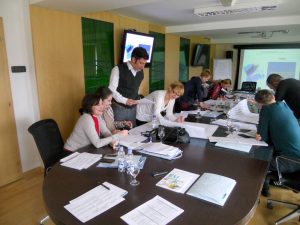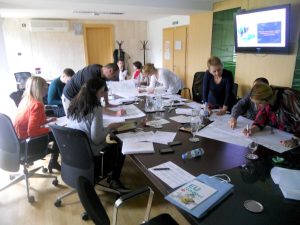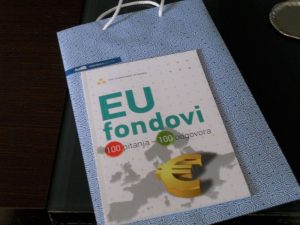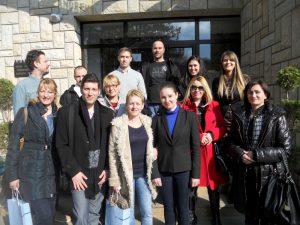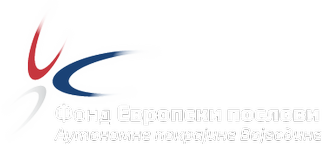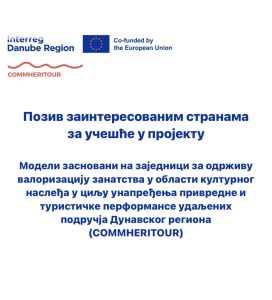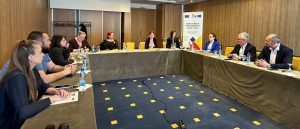The representatives of the Provincial Secretariat for Education, Regulations, Administration and National Minorities – National Communities on a training course in EU project development
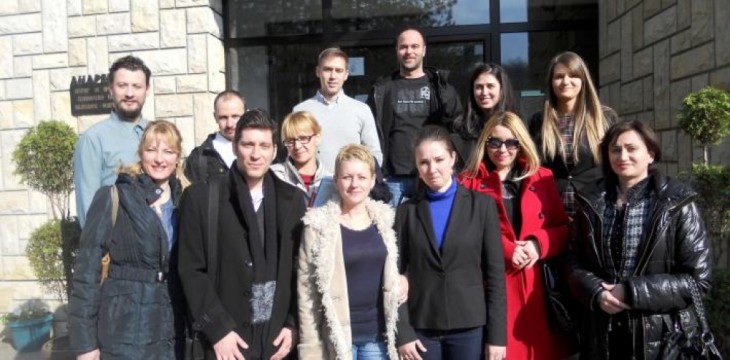
The representatives of the European Affairs Fund of Autonomous Province of Vojvodina, Jano Puškar and Tamara Glišić have held the three-training course “EU Funding Opportunities” for the employees of the Provincial Secretariat for Education, Regulations, Administration and National Minorities – National Communities. The training was held at the Center for Business and Technological Development of Vojvodina in Andrevlje, from 14th to 16th March 2016.
During the training, the participants obtained detailed information about the opportunities offered by the EU programmes available to institutions from Serbia, with the focus on education. The participants were presented in detail with the Instrument for Pre-Accession Assistance 2014-2020 and the functioning of this financial instrument which was developmental assistance to the Republic of Serbia. Because of the high level of resource utilization and success of cross-border programmes in the Autonomous Province of Vojvodina, the presentation focused especially on the Interreg IPA CBC Programme Croatia-Serbia, under which a call for proposals was open at the moment, as well as the Interreg program IPA CBC Hungary-Serbia, under which the first call for proposals was expected in the next period. In addition to the mentioned cross-border programmes, the participants were informed about the structure of other CBC programmes (CBC Romania – Serbia, CBC Bosnia and Hercegovina-Serbia) and transnational programmers, such as the Danube Transnational Programme and the Interreg V B Adriatic Ionian Programme.
Moreover, the participants were presented with the funding opportunities under the EU programmes, such as Erasmus+, the EU program covering education, training, youth and sport, and the Europe for Citizens. The practical part of the training focused on the development of specific project ideas, while the last day of the training was reserved for the presentation on the EU projects budgeting and the structure of the application form.
During the training, the participants’ attitudes and skills were developed, so that they could take an active role in project development and project implementation in the future.


